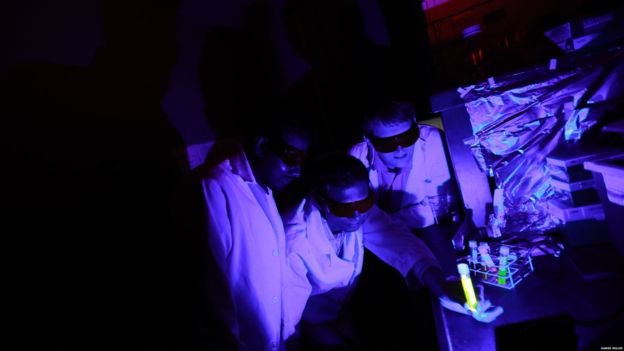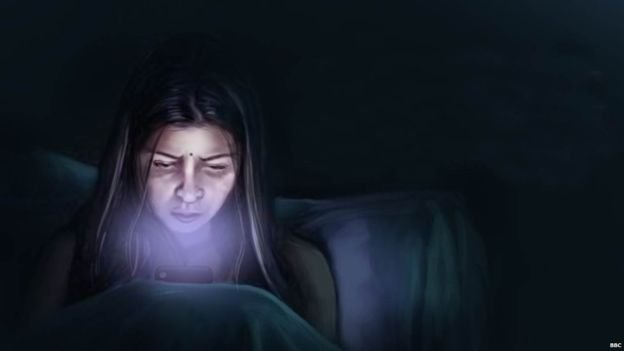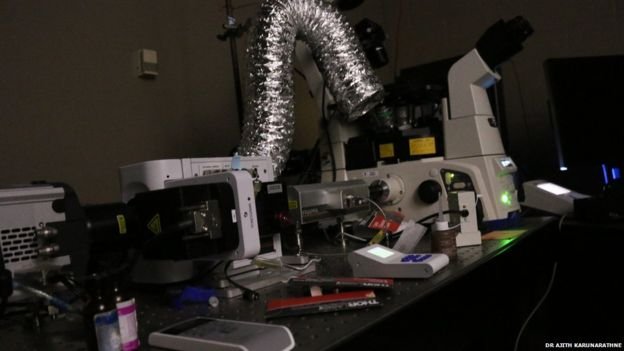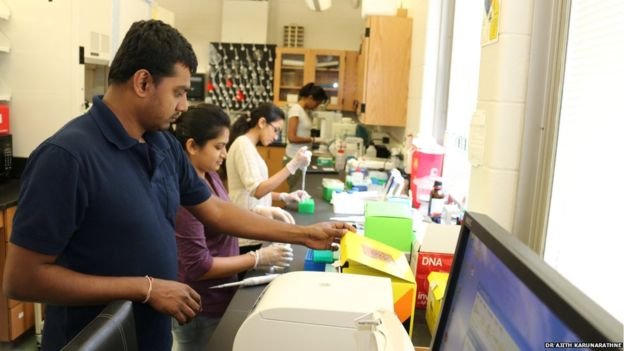A discovery of a Sri Lankan scientist: Mobile phones, computers and television show "risk of blindness"
The people in the Middle East, the desert in the Far East, Siberia and in many remote areas of the world, are now using mobile phones.
A decade ago, television that was a luxury product was also a common tool among ordinary people today.
And the computer is not just a legacy to the privileged class.
But do you know that by using digital cameras such as cellphones, computers, tablets, and televisions, you have a serious risk of becoming blind?
A scientist from Sri Lanka says that such a serious risk is due to the blue light that comes out of these tools.
"There is a common recognition that blue light is harmful to eyes," explains Dr. Ajith Karunaratne, the assistant professor of the University of Toledo at the University of Toledo, in the BBC's Sinhala service.
The research was led by a group of researchers headed by Dr. Karunaratne.
"The companies that make things like that are fine-tuning systems like the ones that cut down on blue light."
Due to this blue light, a group including Dr. Ajith Karunaratne, along with a group of researchers at the University of Toledo, have discovered that such devices may become obsolete.
Apart from Dr. Ajith Karunaratne, the research also helped students in Sri Lanka including students from Sri Lanka.
Expert who has a special discussion with the BBC Sinhala service said: "There has not yet been a scientific explanation that this is happening to blue eyes light is harmful to the eyes," says his research.
Researchers at the University of Toledo's Department of Chemical and Biochemical Research report that when it enters not only the eyes but also the skin on the skin, blue light is harmful to it.
"Our eyes have a molecule, we call it a retinal." This alpha-idis is essential for the sensation of light in our eyes, which is produced by the eyes, so that when the cells are released from the cells, this released colony can absorb blue light and absorb it Damage to other biological chemical reactions in the eyes. "
Researchers emphasize that many blue-colored lights, including mobile phones and devices, have a risk of blindness.
- How can this risk be reduced?
Despite the ultraviolet light of humans and animals, blue light can not be prevented.
The retina is made to absorb blue light.
Therefore, as researchers point out, using electronic devices, such as mobile phones or computers, is a strategy to reduce this risk when light is available in the environment.
"At that time, whenever there is blue light, even that amount does not enter because there are only a few apertures in the eye to see the eye when the light is in the environment," explained Dr. Ajith Karunaratne.
"But if the mobile phone is fully lit in a dark room, the aperture is so large that it becomes dark in the dark, so use it in a daylight or in a light environment."
- Should Mobile Phone Limit? Researchers admit that there is so much health risk in the needs of the latest world that the use of mobile, computer, or television tools can not be limited.
Therefore, whenever possible, use of such equipment in a light environment is one of the means of avoiding the risk of blindness.
On the other hand, producers must take an interest in looking at ways to reduce blue-colored light from such tools if they are proven to be at risk.
"This is especially blue," said Dr. Ajith Karunaratne, "because we did not look at the colors of green, yellow and red, so it would limit blue light."
Another modification is the manufacture of mirrors for blue light-emitting diodes from e-tools.
"We can only remove the light in the range of damage and make the other light waves come into our eye."
Dr. Karunaratne further stated that the research was aimed at educating people about the use of devices such as mobile phones, computers or television, not to terrorize people around the world, but to use them hygially.
And researchers are also investigating the possibility of producing blue-green effect preventable drugs.
"The challenge we have is to understand how to do further research and understand how this is avoided."



